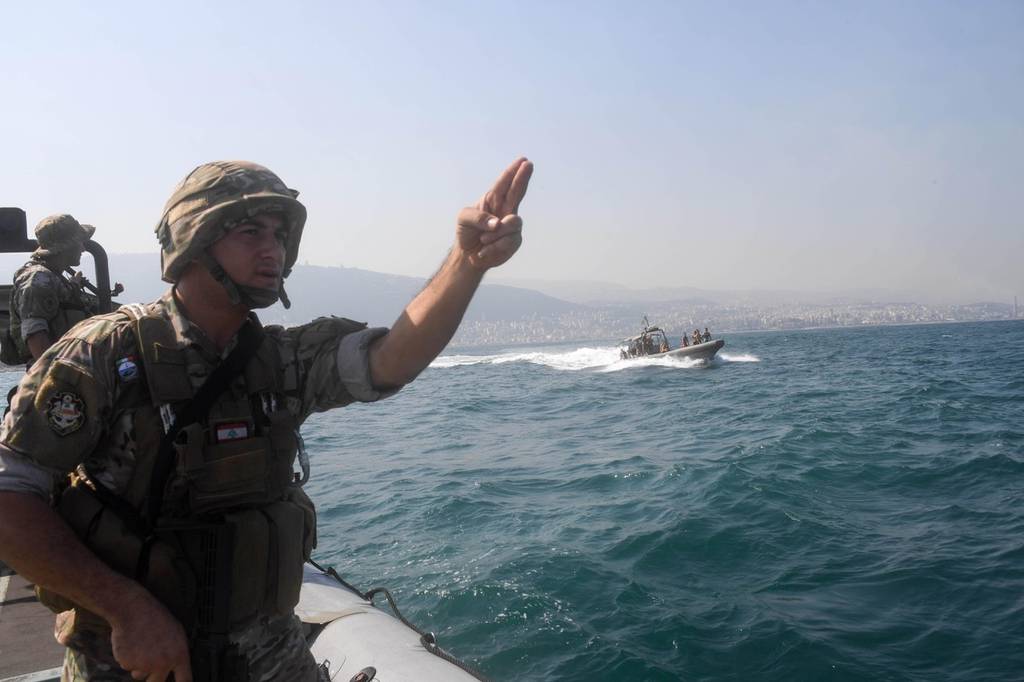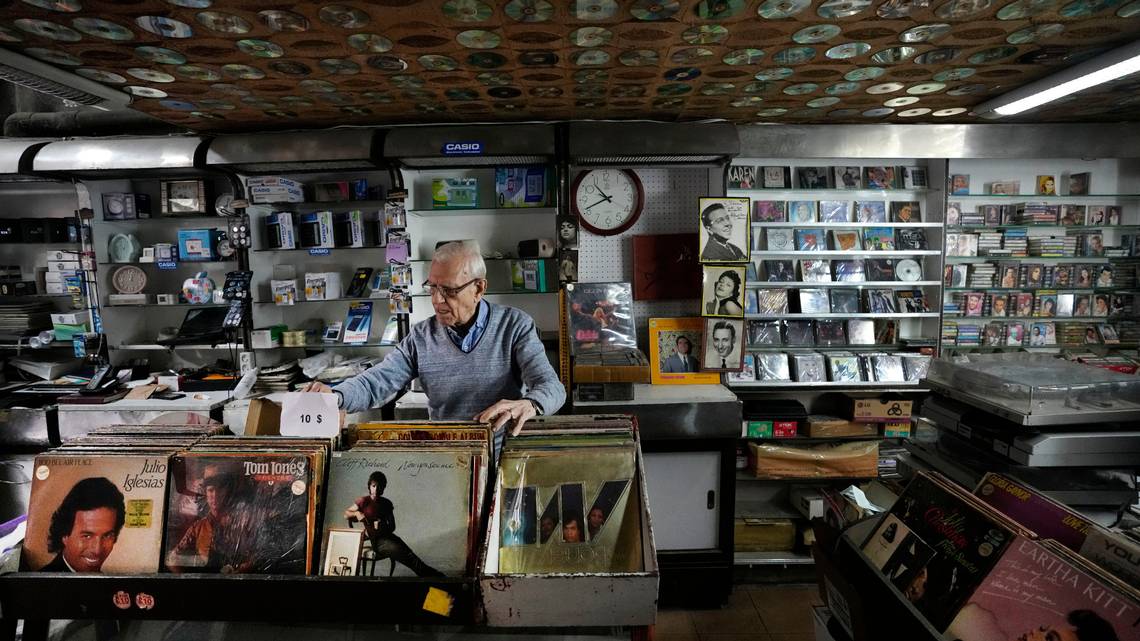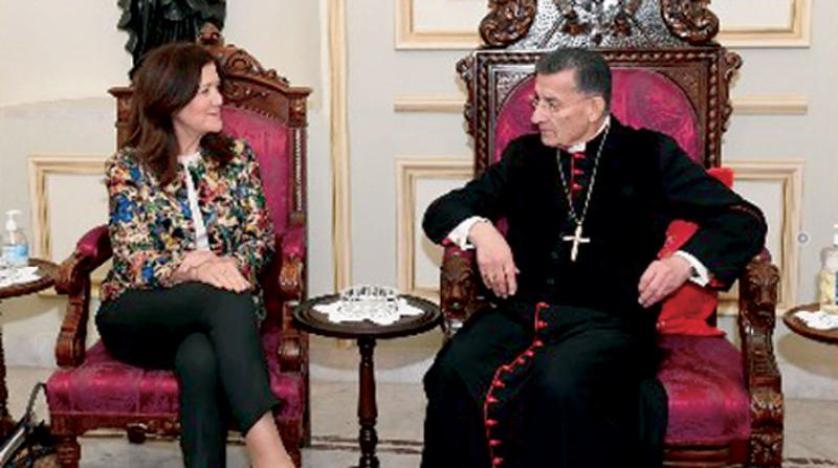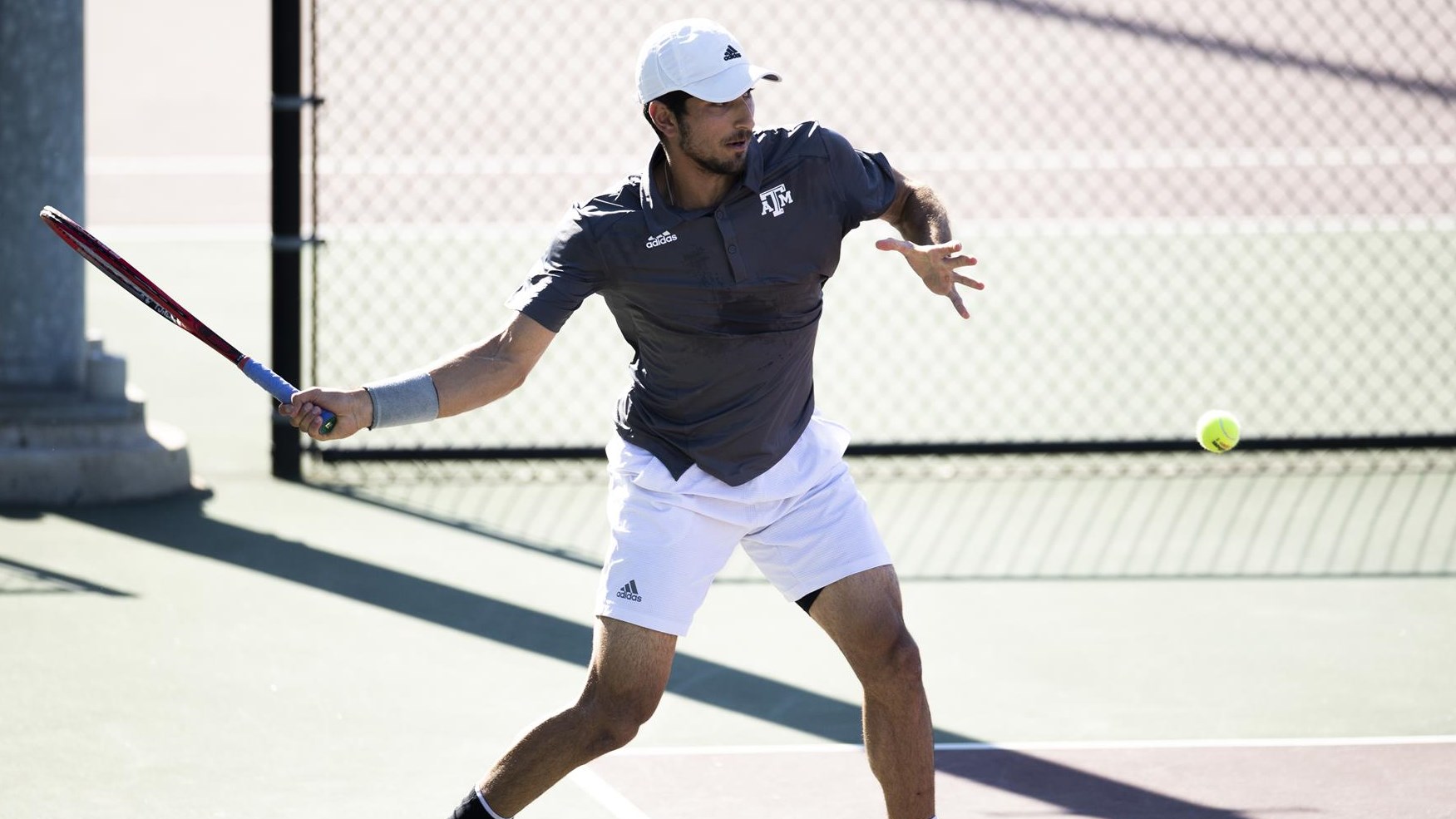
By Agnes Helou -- defensenews.com -- BEIRUT — Lebanon’s Navy is expected to receive this year multi-purpose boats from Italy and Protector-class coastal patrol boats from the United States, but the country still hopes to revive frigate negotiations with Italy. Last month, the Lebanese Navy received a donation from Italy of a 12-meter-long multi-purpose boat known as a Rigid Inflatable Boat, an 8000-liter fuel tanker and two 20-passenger vans. “A similar donation is expected to be received during July 2022. The Navy also expects to receive a donation [of] 100,000 Euros worth from the Italian side for the maintenance of the Multi Beam Echo Sounder and the updating of the software used in the production of nautical charts,” Navy Commander Senior Capt. Haissam Dannaoui told Defense News. However, Dannoui said no agreement has been reached with the Italian government about a potential donation of frigates. “The project of frigates provided as an Italian donation has not yet taken shape, and the detailed specifications of these frigates have not been discussed,” he said. “If the situation in the country improves, the Navy aspires to re-launch this project and to set the detailed specifications for such boats.”
Members of the Lebanese Naval Forces conducted training on two U.S. Coast Guard ships at the Beirut Naval Base earlier this month, according to the Lebanese Army official website. The website said this was “training members of the Naval Forces to use boats that will be a donation to the navy during 2022.” Dannoui told Defense News the Navy is set to receive from the United States “three Protector-class boats, 27 meters long each, with a total weight of 93 tons. These boats are considered as coastal patrol boats that contribute to enhancing the ability of the navy to carry out the tasks assigned to it.” He said the exercises taking place with the two U.S. ships included those focused on sharing experiences in the field of damage control on board boats, exchanging experiences in the field of search and rescue and a workshop on boats donated by the American side. Dannoui said the Protector-class vessels are expected in late 2022 or early 2023.

By BY BASSEM MROUE ASSOCIATED PRESS -- From his small music shop on Beirut’s Hamra Street, Michel Eid witnessed the rise and fall of Lebanon through the changing fortunes of this famed boulevard for more than 60 years. Hamra Street was the center of Beirut’s glamour in the 1960s and 1970s, home to Lebanon’s top movie houses and theaters, cafes frequented by intellectuals and artists, and shops selling top international brands. It saw a revival the past decade, thriving with international chain stores and vibrant bars and restaurants. Now many of its stores are shuttered. Poverty-stricken Lebanese and Syrian refugees beg on its sidewalks. Trash piles up on its corners. Like the rest of Lebanon, the economic crash swept through the street like a destructive storm.
At 88 years old, Eid remembers the bad times, during Lebanon’s 1975-1990 civil war, when Hamra saw militias battling, assassinations at its cafes and, at one point, invading Israeli troops marching down the street. Nothing was as bad as now, Eid says. “We have hit rock bottom,” he said. Few customers come to his Tosca Music Shop and Electronic Supplies, which sells records and a variety of electronic clocks, calculators and watches. His business has dropped 75%.
Lebanon’s economic meltdown, which began in October 2019, was the culmination of the country’s post-war era. The war’s militia leaders became the political leadership and have kept a lock on power ever since. They ran an economy that at times boomed but was effectively a Ponzi scheme riddled with corruption and mismanagement. The scheme finally collapsed in what the World Bank calls one of the world’s worst economic and financial crises since the mid 1800s. The currency’s value evaporated, salaries lost their buying power, dollars in banks became inaccessible, prices skyrocketed in a country where nearly everything is imported.

by english.aawsat.com -- The International Support Group for Lebanon (ISG) has openly joined forces to push the Lebanese authorities to hold the parliamentary elections on their scheduled date on May 15. The ISG met in Beirut on Friday to review preparations for the upcoming polls. Echoing the recent Security Council press statement on Lebanon, and recalling its previous statements, the ISG reiterated its call for free, fair, transparent and inclusive elections, as scheduled on May 15, an official statement said. It added: “The ISG noted that while the international community was deeply committed to and had provided significant financial, material, technical and political support to Lebanon’s electoral process, the elections are first and foremost a right and expectation of the people of Lebanon and a sovereign responsibility which is incumbent on the authorities to deliver on.” Three months before the election, the International Support Group urged “expeditious preparatory work respecting the existing legislative framework and the constitutional timelines.”
The ISG also called on the relevant authorities to “promptly make available all the necessary resources and intensify technical and administrative preparations to ensure the timeliness and integrity of the electoral process.” The ISG brings together representatives of the United Nations and the governments of China, France, Germany, Italy, the Russian Federation, the United Kingdom and the United States, in addition to the European Union and the Arab League. It was launched in September 2013 by the UN Secretary-General with former President Michel Sleiman to help mobilize support and assistance for Lebanon’s stability, sovereignty and state institutions. In its statement, the ISG urged “relevant bodies to allocate the necessary financial resources to hold the elections in Lebanon and abroad, enable the Ministry of Interior and Municipalities and the Supervisory Commission for Elections to be fully functional, and ensure timely organization for the conduct of the diaspora voting.”

By Reem Abulleil - thenationalnews.com -- For more than a decade, Tunisian Malek Jaziri and Egyptian Mohamed Safwat have been the leading Arab players on the men’s tennis tour, but a new protagonist has emerged from the region, looking to make his way to the top of the sport. Lebanon’s Hady Habib only kickstarted his professional career in earnest mid-last year, after graduating from Texas A&M University in May. In his final months as an 'Aggie', Habib was the No 1-ranked college tennis player in the United States – a fitting way to close the door on one chapter of his career before starting a new one in the pros. Since graduation, the 23-year-old Habib has picked up four ITF titles, including one at a $25k-level tournament in Sharm El Sheikh, where he defeated in the final former top-30 player Lukas Rosol, who famously beat Rafael Nadal at Wimbledon in 2012. “It gives you incredible belief,” Habib told The National after clinching the trophy last Sunday. “I actually watched him a few years back play against Rafa and beat him on TV, and it's just a pleasure to play him. And winning is huge. “His level obviously isn't at his prime right now. But still, he knows how to play and he's got experience, so it's definitely a huge win for me, giving me some good confidence for the rest of the year.”
Habib was born in Houston, Texas before moving to Lebanon with his family at the age of six. He got introduced to tennis at Mtayleb Country Club in Beirut when he was nine after dabbling in swimming and basketball. “I just started playing tennis and I got good at it really fast,” Habib said. “I was really enjoy playing so I gave it a shot and I kept playing and that eventually turned into true love for the sport. “My parents actually told me, ‘Is this what you want to do? Is tennis your thing?’ I was like, ‘Yeah, 100 per cent this one I want to do’ and that's why we decided to move out of Lebanon.” After eight years in Lebanon, Habib returned to the US, first training in California before heading to Nick Bollettieri’s IMG Academy in Bradenton, Florida. As a 16-year-old, he was ranked as high as No 77 in the world junior rankings, which helped him catch the eye of college recruiters. He eventually landed a scholarship in his home state and began his college tennis career at Texas A&M while pursuing a degree in sports management.
Khazen History


Historical Feature:
Churches and Monasteries of the Khazen family

St. Anthony of Padua Church in Ballouneh
Mar Abda Church in Bakaatit Kanaan
Saint Michael Church in Bkaatouta
Saint Therese Church in Qolayaat
Saint Simeon Stylites (مار سمعان العامودي) Church In Ajaltoun
Virgin Mary Church (سيدة المعونات) in Sheilé
Assumption of Mary Church in Ballouneh
1 - The sword of the Maronite Prince
2 - LES KHAZEN CONSULS DE FRANCE
3 - LES MARONITES & LES KHAZEN
4 - LES MAAN & LES KHAZEN
5 - ORIGINE DE LA FAMILLE
Population Movements to Keserwan - The Khazens and The Maans
ما جاء عن الثورة في المقاطعة الكسروانية
ثورة أهالي كسروان على المشايخ الخوازنة وأسبابها
Origins of the "Prince of Maronite" Title
Growing diversity: the Khazin sheiks and the clergy in the first decades of the 18th century
Historical Members:
Barbar Beik El Khazen [English]
Patriach Toubia Kaiss El Khazen(Biography & Life Part1 Part2) (Arabic)
Patriach Youssef Dargham El Khazen (Cont'd)
Cheikh Bishara Jafal El Khazen
Patriarch Youssef Raji El Khazen
The Martyrs Cheikh Philippe & Cheikh Farid El Khazen
Cheikh Nawfal El Khazen (Consul De France)
Cheikh Hossun El Khazen (Consul De France)
Cheikh Abou-Nawfal El Khazen (Consul De France)
Cheikh Francis Abee Nader & his son Yousef
Cheikh Abou-Kanso El Khazen (Consul De France)
Cheikh Abou Nader El Khazen
Cheikh Chafic El Khazen
Cheikh Keserwan El Khazen
Cheikh Serhal El Khazen [English]
Cheikh Rafiq El Khazen [English]
Cheikh Hanna El Khazen
Cheikha Arzi El Khazen
Marie El Khazen